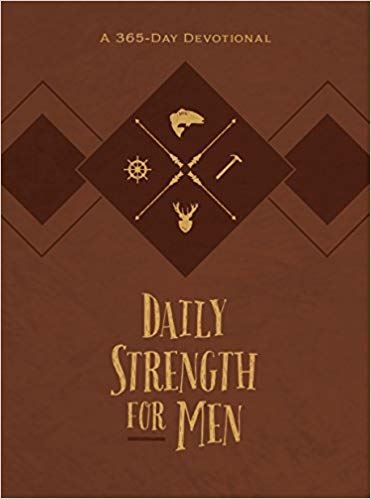About 15 years ago, an elder at a Presbyterian church in Alaska had a crisis of faith. “I loved God, but I hated going to church,” he recalls. “Sunday morning would find my body in the pews, but my heart was elsewhere.”
When he looked around, he saw many other men like him. Christian men – including born-again, Spirit-filled, faithful followers of Christ – went through the motions on Sunday morning. They attended church only to keep their wives happy. Or they had stopped attending altogether.
He decided to do some research. And that research resulted in the book Why Men Hate Going to Church, which has sold over 150,000 copies and spawned a Facebook page, Church for Men, that has over 5,000 followers and a weekly post reach of 50,000 people.
Traditional churches are geared for women.
“I've been in the TV and video production industry for over 30 years,” says the book’s author, David Murrow. “In my business, you learn that everything has a target audience. ESPN has a different target audience than the Oxygen channel, for example.”
Murrow offers, “If the typical church were a TV show, it would be on the Oprah Network. The culture of the church is very much oriented toward women.”
He added: “At the mainline church where I served as an elder, most of our ministries revolved around traditionally feminine roles in caring for the sick, caring for children, ladies’ teas, ladies’ scrapbooking nights. It definitely was skewed toward women, in particular, older women. It’s the perfect institution for these women to use their gifts.”
However, Murrow points out, “men's gifts lie fallow. The things that guys are into – strategic planning, sports, competition – these things are frowned on in the church. Church is supposed to be a warm, nurturing place where we hold hands and love each other.”
Women naturally excel at church, and most men don’t.
Why is the congregation at a typical mainline church 60 to 70 percent female? “Think about the skills that you need to be good at being a churchgoer,” explains Murrow. “You need to sing. You need to be able to read aloud – lectionary readings, responsive readings, and so on. If you go to a Sunday School class, then you’ll be asked questions about a text and may have to read a text from the Bible. You have socializing before and after the service – coffee hour and those sorts of things. It's a lot of soft, interpersonal skills, verbal skills, and artistic skills.”
“If you take those skills and look at the population,” Murrow suggests, “there are more women than men in the population who possess those gifts. Now there are certainly men out there who are verbal, studious, sensitive, and musical, but their numbers tend to be smaller. And, for the most part, those are the guys we tend to find in church.”
We’re setting up a situation that if wives are better at it, husbands might quit.
Murrow maintains that men don’t hate God or hate Jesus. They simply hate churchgoing because their wives are much better at it.
“When I was a young man in my early 20s, I briefly took up the game of golf,” he says. “I quickly learned that I have absolutely no knack for the game. If my ball wasn’t in the sand trap, then it was in the water. After two or three bad rounds, I did what most men do when they are not good at something: I quit. I put my clubs away and never picked them up again.”
Murrow added, “We’ve set up a situation with church. Joe Smith tries it. He doesn’t find God there, doesn’t find anything that he’s good at there, and feels like he’s not needed there. There’s really only one man who’s needed there, and that’s the pastor. Since Joe Smith is never going to preach, he doesn’t see a future for himself within this institution.”
Truth is, many men profoundly interact with God outside of organized religion.
“In fact,” Murrow continued, “Joe probably feels that he can connect better with God outside of the institution of ‘organized religion’. I’ve talked with men who’ve had profound experiences with God while they were out hunting or out on a boat on the water.”
Said Murrow, “It sounds like a dodge, so we tell these men, ‘Oh, you’re just making excuses.’ But it’s true. I mean, these guys have profound experiences with God out in the field, doing things with their kids. They experience God at a gut level. I think it's because they're in their area of competence. They feel comfortable there, and God speaks to them in their comfort.”
If many men hate going to church, then what’s a church to do? Start with the sermon.
Murrow offers a lot of recommendations in his book. The best starting point, he suggests, is the sermon.
A man-friendly sermon will reach not just men but women as well. “Women are blessed with a very flexible, multitasking brain,” he says. “Women can ‘do masculine’, but men don't usually do well with highly verbal, feminine-type presentations. So, if you preach to the men, the women will often enjoy it as well.”
Shorter sermons with object lessons work best.
Shorter is better, he contends. “If I were going to plant a church, I would preach 10-minute sermons,” he says, “and I would market my church as the home of the 10-minute sermon. When people are polled; long, boring, irrelevant sermons is the number one thing that people don’t like about church.”
Structuring the message around an object lesson is the approach used by the greatest preacher in history: Jesus.
“Men are visual learners,” says Murrow. “A lot of skilled preachers are using video to supplement their sermons, but the very best thing is for the pastor to actually bring an object into the pulpit when he or she speaks.”
Murrow recalled, “One time when I spoke in church, it was from inside a box. Another successful sermon I saw was delivered from on top of a ladder. In a sermon on the difference between grace and works, the pastor used a debit card versus a gift card. With a debit card, you can withdraw only what you’ve paid in, whereas with a gift card God pays in and you spend it on whatever you want.”
“If a pastor really wants to turn his church around and get men in the pews,” explains Murrow, “then he should preach concise sermons built around object lessons. A pastor who does that will have a church full of men in a few years.”
Unfortunately, this approach is not taught in seminary. “Pastors are taught in seminary to speak words,” says Murrow. “They are not taught to implant truth. We live in a highly visual culture, and yet we stubbornly cling on the traditional, lengthy, spoken sermon because anything else is just ‘entertainment’ or ‘pandering to the lowest common denominator.”
Are you ready to inspire more men to love church again? Take the first step with sermons that men relate to and understand naturally.
Discuss this topic with us in the Crosswalk Forums!
Photo credit: ©GettyImages/deviousrlm




